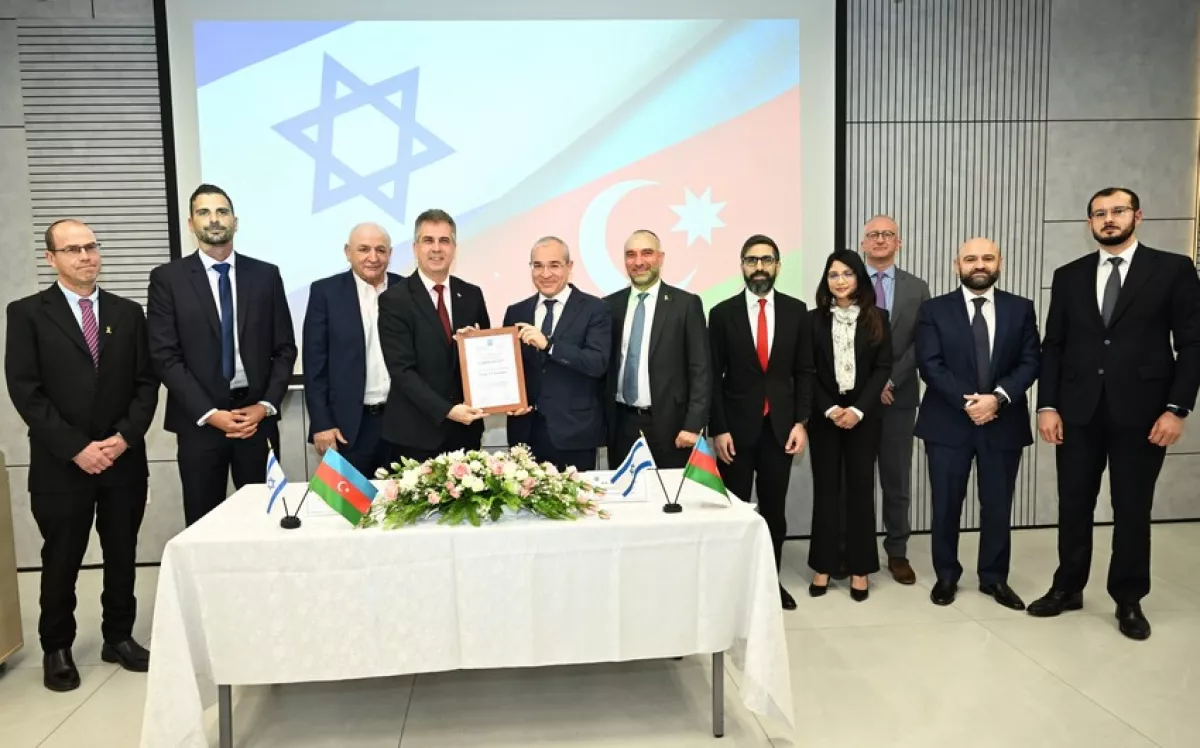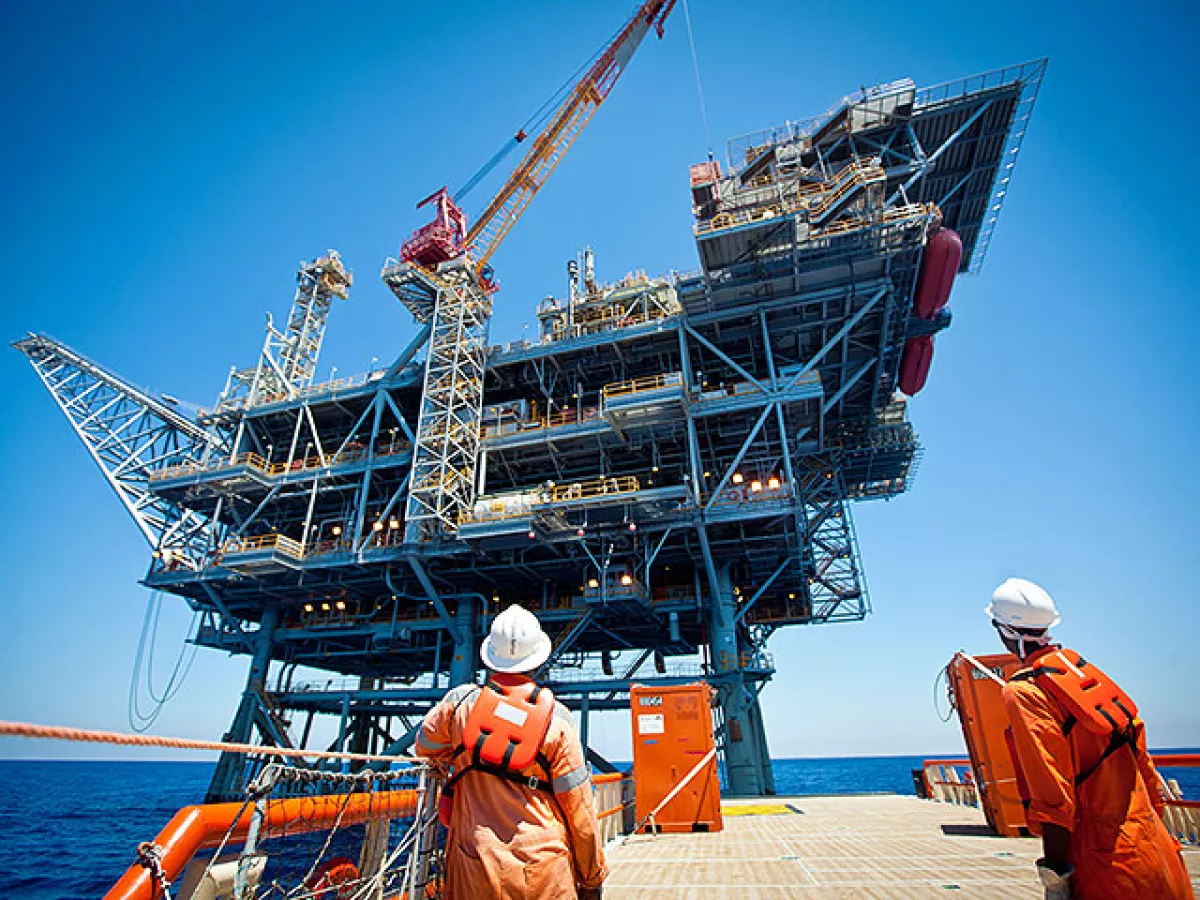Azerbaijan strengthens its positions in the Mediterranean Baku and Tel Aviv cement energy alliance
Over the past couple of decades, the State Oil Company of Azerbaijan Republic (SOCAR) and its subsidiaries have invested billions in post-Soviet countries and far abroad states. These investments covered not only the oil and gas logistics and transportation sectors but also petrochemicals, fuel production, the creation of networks of gas stations, and distribution pipelines. A promising direction for increasing external capitalisation appears to be Azerbaijani-Israeli cooperation, within which SOCAR is involved in gas exploration in the Eastern Mediterranean. Recently, Israeli media reported that the Israeli Antitrust Authority officially approved SOCAR’s acquisition of a 10% stake in the Tamar gas field development project.
Cooperation between Azerbaijan and Israel in the energy sector spans two decades and undoubtedly serves as the foundation for the successful development of trade and economic ties between the two friendly countries. At various times, Azerbaijan has supplied between one-third and half of Israel’s crude oil needs. These supplies were mainly carried out by SOCAR via the Baku-Tbilisi-Ceyhan pipeline. From the Turkish port of Ceyhan, Azerbaijani oil was shipped by tankers for refining at the Bazan refinery in Haifa and at the Paz refinery in Ashdod.
Moreover, about five years ago, SOCAR was offered the opportunity to participate in the privatization of the Paz refinery. However, the pandemic crisis and the oil price crash in 2020 created a number of difficulties in attracting capital. One way or another, the established connections in the oil sector have withstood several energy crises and regional conflicts, and Baku continues to be a reliable partner for Tel Aviv in the field of energy security.
Notably, Azerbaijani-Israeli cooperation in oil supply has successfully evolved into the field of hydrocarbon exploration. About ten years ago, specialists from Caspian Drilling Company (CDC) — an international joint venture involving SOCAR — drilled an exploratory well 5,700 meters deep and discovered oil (reserves of approximately 120 million barrels) at the Shemen field (Yam-3 block), located 15 km west of the Israeli city of Ashdod. Subsequently, CDC experts participated in drilling another oil well on the shelf along Israel’s Eastern Mediterranean coast. This experience confirmed the partners’ expectations that SOCAR specialists, possessing significant expertise and know-how in the oil and gas sector, have the potential to contribute to the development of Israel’s upstream industry.
The next stage of cooperation began in October 2023, when Azerbaijani SOCAR, in partnership with British BP and Israeli NewMed Energy, was granted a three-year license for natural gas exploration in the I-6 cluster on the Israeli offshore shelf near the Leviathan gas field in the Mediterranean Sea.

However, the most significant event in the energy cooperation between the two countries was the deal concluded on January 31 of this year, in which SOCAR acquired a 10% stake in the Tamar project from Union Energy. Tamar is one of the largest offshore gas fields in the Mediterranean. The operator of the Tamar field, located 90 km off the coast of Haifa, is the American company Chevron Corp., which holds a 25% share. Today, this offshore field plays a vital role in Israel’s energy security and the economic development of the region as a whole. According to an independent assessment conducted by NSAI, the estimated natural gas reserves at this field amount to approximately 389 billion cubic meters, making it a strategically important asset.
The acquisition of a stake in the Tamar field marks the first major investment by the State Oil Company of Azerbaijan Republic (SOCAR) in exploration and production projects in the Mediterranean.
“SOCAR has long been an international oil and gas company; however, its overseas activities have mainly focused on refining, transportation, retail, and trading of oil and petroleum products. Now, we are expanding our international operations in the upstream sector: the recent acquisition by SOCAR of a 10% stake in the Tamar project in the Mediterranean, as well as a 3% stake last year in the development projects of the SARB and Umm Lulu fields, opens a new chapter in SOCAR’s international production expansion,” said SOCAR Vice President Babek Huseynov at the IADC Drilling Caspian 2025 conference held in Baku in February of this year.

Since the deal was concluded at the end of January, relevant authorities in Israel have been processing the necessary approvals. According to information published recently by the reputable Israeli publication Calcalist, the Israeli Antitrust Authority officially granted SOCAR permission to purchase a 10% stake in the Tamar gas field project from Israeli billionaire Aaron Gober Frenkel, who has held this stake since 2021 through his company Union Energy. At the same time, the Antitrust Authority’s approval was issued with a specific condition: SOCAR will not operate gas fields in areas where it already holds exploration licenses in Israel. According to Calcalist, one more key approval is still required to complete the transaction — from the Petroleum Council under Israel’s Ministry of Energy, which is a standard procedure for such transactions in the country’s energy sector.
Commenting on the prospects of Azerbaijani-Israeli cooperation in the energy sector, former Director of the Engineering and Inspection Division at Israel’s Ministry of Energy, Victor Baryudin, recently noted that Azerbaijan is recognised as a country with a highly developed oil and gas industry, and that Azerbaijani specialists in this field are highly qualified — both in terms of knowledge and practical experience.
“In the future, if the international situation permits, the use of the Southern Gas Corridor’s infrastructure for delivering Israeli gas to Europe cannot be ruled out,” Baryudin stated.
The expert also stressed that beyond cooperation in the oil and gas sector, there is considerable potential for joint initiatives between Israel and Azerbaijan in high-tech and green energy, agriculture, tourism, as well as addressing freshwater shortages — including through the construction of seawater desalination plants.








